Here are some events that happened on April 29th. It could be an event or a person that died or was born on that day
1676 Died: Michiel de Ruyter, Dutch admiral (b. 1607)
Michiel Adriaenszoon de Ruyter (24 March 1607 – 29 April 1676) was a Dutch admiral. Widely celebrated and regarded as one of the most skilled admirals in history, De Ruyter is arguably most famous for his achievements with the Dutch Navy during the Anglo-Dutch Wars. He fought the English and French forces and scored several critical victories, with the Raid on the Medway being the most famous among them.
Often dubbed a Dutch folk hero, De Ruyter is one of a few select officers in the history of the Dutch navy to hold the title of the lieutenant admiral (Dutch: luitenant-admiraal). Reportedly beloved by his subordinates and seamen, De Ruyter was commonly nicknamed Bestevaêr (Middle Dutch for "grandfather") during his service, a nickname that is sometimes still used to refer to him in Dutch media.
Dutch stamps issued depicting Michiel de Ruyter
1770 – James Cook arrives in Australia at Botany Bay, which he names.
1818 Born: Alexander II of Russia (d. 1881)
Alexander II (29 April 1818 – 13 March 1881) was the emperor of Russia from 2 March 1855 until his assassination on 13 March 1881. He was also the king of Poland and the grand duke of Finland.
Alexander's most significant reform as emperor was emancipation of Russia's serfs in 1861, for which he is known as Alexander the Liberator. The tsar was responsible for other reforms, including reorganizing the judicial system, setting up elected local judges, abolishing corporal punishment, promoting local self-government through the zemstvo system, imposing universal military service, ending some privileges of the nobility, and promoting university education. After an assassination attempt in 1866, Alexander adopted a somewhat more reactionary stance until his death.
Alexander pivoted towards foreign policy and sold Alaska to the United States in 1867, fearing the remote colony would fall into British hands if there were another war. He sought peace, moved away from bellicose France when Napoleon III fell in 1871, and in 1872 joined with Germany and Austria in the League of the Three Emperors that stabilized the European situation. Despite his otherwise pacifist foreign policy, he fought a brief war with the Ottoman Empire in 1877–78, pursued further expansion into Siberia and the Caucasus, and conquered Turkestan. Although disappointed by the results of the Congress of Berlin in 1878, Alexander abided by that agreement. Among his greatest domestic challenges was an uprising in Poland in 1863, to which he responded by stripping that land of its separate constitution and incorporating it directly into Russia. Alexander was proposing additional parliamentary reforms to counter the rise of nascent revolutionary and anarchistic movements when he was assassinated in 1881.
Russian stamps depicting Alexander II
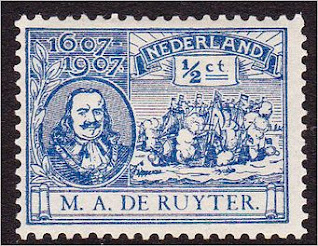
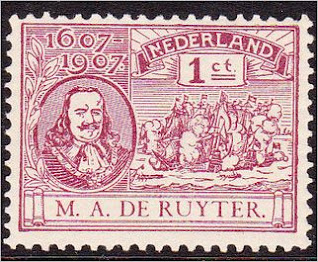


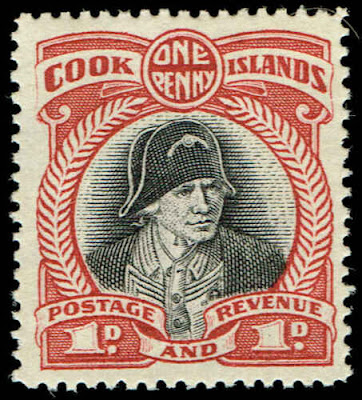

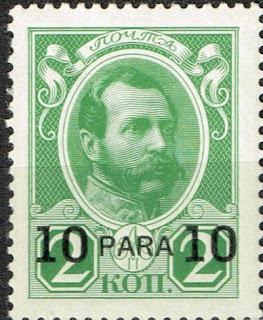
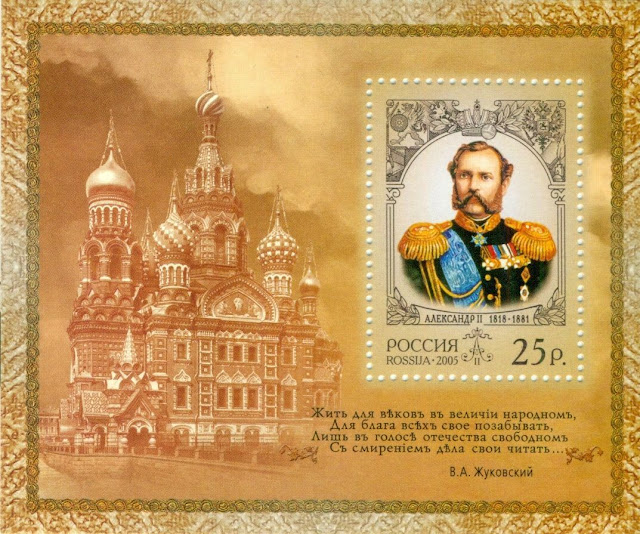
No comments:
Post a Comment